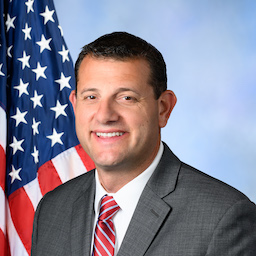- Home
- About
-
Services
- Art Competition
- Community Project Funding Map
- Congressional App Contest
- Congressional Certificate
- Event Request
- Flag Request
- Grants
- Grant Letters of Support
- Help with a Federal Agency
- Inauguration
- Internships
- Kids Page
- Meeting Request
- Service Academy Nominations
- Tour Requests
- Vietnam Veteran Commemoration
- Government Shutdown FAQ
- Issues
- Media
- Contact

Press Releases
Valadao, Costa Introduce Legislation to Boost Sustainability in Livestock Industry
Washington,
July 25, 2023
|
Faith Mabry
Tags:
Agriculture
Congressman David G. Valadao (CA-22) joined Congressman Jim Costa (CA-20), Congresswoman Chellie Pingree (ME-01) and Senators Alex Padilla (D-CA) and Sherrod Brown (D-OH) to introduce the Converting Our Waste Sustainably (COWS) Act.
WASHINGTON – Today, Congressman David G. Valadao (CA-22) joined Congressman Jim Costa (CA-20), Congresswoman Chellie Pingree (ME-01) and Senators Alex Padilla (D-CA) and Sherrod Brown (D-OH) to introduce the Converting Our Waste Sustainably (COWS) Act. This bipartisan, bicameral legislation would establish a new manure management conservation program to improve air quality and implement sustainable farming practices. “I understand firsthand the needs and challenges of our Central Valley dairy producers,” said Congressman Valadao. “We have a methane digester on our dairy, and it helps to produce energy while also reducing emissions. I’m proud to support this legislation that would make this same kind of manure management technology more accessible for the livestock industry. Our farmers are the best stewards of our environment, and equipping them with the best available technology is good for the industry and good for the environment.” “California is leading the nation in the implementation of alternative manure management systems, helping provide a significant reduction of greenhouse emissions. These sustainable farming practices are improving water quality and reducing costs for farmers,” said Congressman Costa. “My bill would expand access to new technologies and set us on a path to reach our climate goals.” “Sustainable manure management is a critical conservation priority for dairy farmers as the industry works to achieve its voluntary, producer-led goal of becoming greenhouse gas neutral or better by 2050. However, conservation programs continue to be oversubscribed, preventing dairy from making its greatest possible contribution to the nation’s greenhouse gas reduction. We thank Reps. Jim Costa, D-CA, David Valadao, R-CA, and Chellie Pingree, D-ME and Sens. Alex Padilla, D-CA, and Sherrod Brown, D-OH, for introducing the bipartisan, bicameral COWS Act which will elevate the emphasis on a variety of manure management systems important to dairy’s stewardship priorities,” said Paul Bleiberg, Senior Vice President of Government Relations at the National Milk Producers Federation. Background: This voluntary program would cover a majority of the cost of installing equipment and infrastructure so producers can move to manure-handling systems that achieve greater environmental benefits. Examples of these transition approaches include advanced solids separation, scrape systems, composted manure, and compost pack barns as well as pasture-based strategies, or various combinations of approaches. The full text of the bill can be found here.### |

